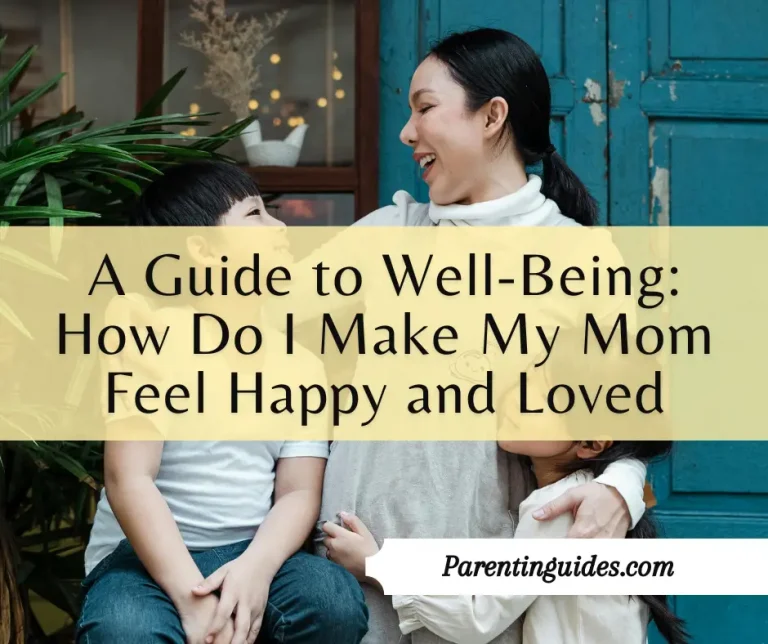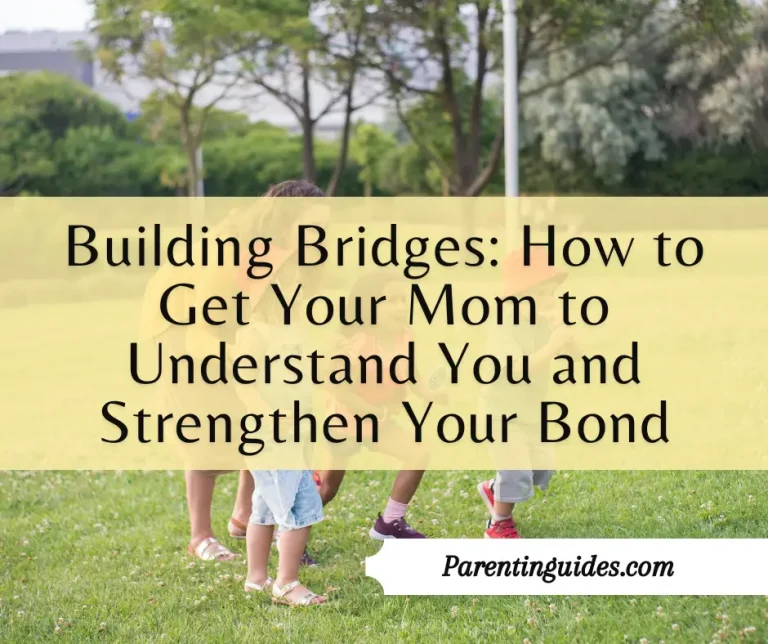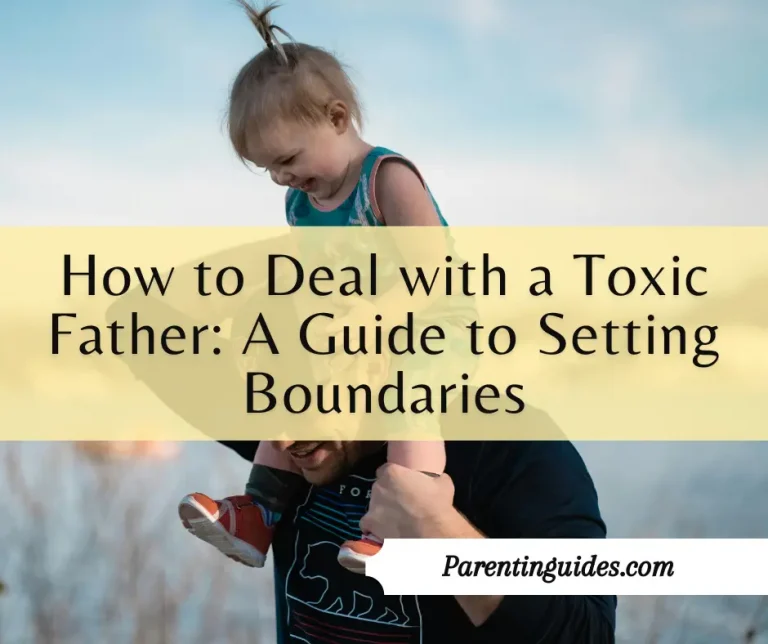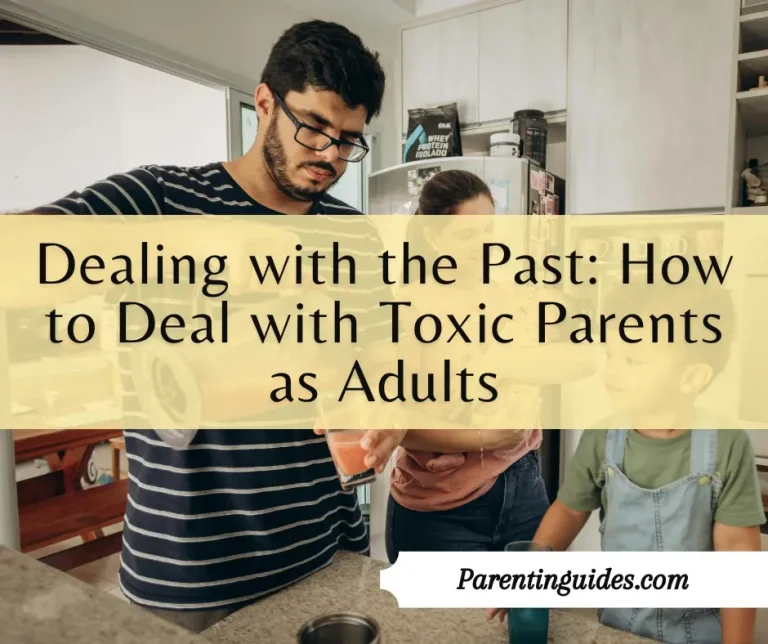As a mother deeply invested in the well-being of my family, I have learned the significant role that parental relationships play in shaping our lives. The nurturing bond between parents and children lays the groundwork for future interactions and personal development. Sadly, not all of us experience this nurturing in a positive light. In our journey, my husband and I have faced considerable challenges that led us to ask something. It is about “What to do if your parents are toxic?”
Understanding and addressing toxic parental relationships is crucial. It is not just for our well-being but also for our children who learn from our examples. Through our experiences, we have realized how vital it is to recognize and tackle these toxic influences. It is to prevent them from repeating through generations.
In this article, I will guide you what to do if your parents are toxic. it is through the maze of handling difficult parental relationships, based on our personal encounters and broad learning. We will explore what makes these dynamics toxic, how to communicate effectively, prioritize self-care, and, when possible, seek reconciliation. Our story and insights aim to empower you with practical strategies and encourage a step towards healing. If you find yourself pondering, “What to do if your parents are toxic?”, this detailed guide will provide the tools and confidence needed to address and manage these complexities in life.
By sharing our story, I hope to help you what to do if your parents are toxic. So, I will navigate these turbulent waters. It is simply by offering a beacon of understanding and practical advice. Join me as we delve into the challenges and possible solutions. Here, it ensures a healthier emotional environment for ourselves and the generations that follow.
Understanding Toxicity in Parental Relationships
Definition of Toxic Relationships
Have you ever thought what to do if your parents are toxic? In our family life, recognizing what makes a relationship toxic has been a critical step towards healing. A toxic relationship, particularly between parents and children, is one where the behavior consistently undermines the other’s sense of well-being. It’s not just about occasional disagreements. Simply, it’s a persistent pattern of hurtful actions that erode trust and self-esteem.
For example, my husband and I noticed that repeated criticism and dismissal of our feelings were clear signs of toxicity from our parents. These behaviors include manipulation, excessive control, neglect, and emotional unavailability. When you find yourself constantly being belittled or feeling unworthy around your parents, it may indicate that the dynamics are toxic. Understanding these patterns was the first step in addressing what to do if your parents are toxic.
Impact of Toxic Relationships
Living through toxic relationships can profoundly affect one’s mental and emotional health. In the short term, children may experience anxiety, depression, or intense stress. These feelings can evolve into long-term psychological issues if not addressed, impacting one’s ability to form healthy relationships in adulthood.
Experts often highlight that prolonged exposure to toxic environments can lead to complex emotional trauma. In our case, both my husband and I found it challenging to trust others and would often second-guess our worth in relationships. It’s essential to recognize these impacts early and seek intervention. Understanding and mitigating the effects of toxic parental relationships is vital when considering what to do if your parents are toxic.
Identifying Signs in Your Relationship with Your Parents
Do you know what to do if your parents are toxic? Identifying signs of toxicity in a parental relationship can be the hardest part. It is simply as these patterns often feel normal to those who have lived with them for years. In our experience, some clear indicators included feeling a constant sense of dread about interactions with our parents or the feeling that nothing we did was ever good enough.
Other signs include your parents disregarding your boundaries, using guilt to control you, or an overall lack of empathy towards your feelings. Recognizing these signs can empower you to take the necessary steps toward healing. It was a crucial part of our journey to find out what to do if your parents are toxic and has been instrumental in our path to better emotional health.

Communicating Effectively with Toxic Parents
Setting Boundaries
When it comes to “What to do if your parents are toxic” here is one of the most crucial steps. It was learning how to set boundaries with our parents. Setting boundaries is essential. It is because it helps protect your emotional well-being and asserts your needs as important. Boundaries communicate to your parents what is acceptable and what isn’t, shaping how they can interact with you.
From our experience, clear boundaries could be as simple as limiting phone calls to specific times or explicitly asking for respectful language. We found it helpful to be very specific and assertive when stating our needs. For instance, saying, “I will not discuss financial matters with you,” or “I need space after our conversations,” helps set clear expectations. If you’re unsure what to do if your parents are toxic, start by determining which interactions cause you distress and setting boundaries around them.
Conflict Resolution Strategies
Here is an answer for “what to do if your parents are toxic”. Handling conflicts with toxic parents requires a careful strategy to avoid escalation. My husband and I learned that the timing and setting of conversations could greatly influence their outcomes. It’s best to choose a neutral time when neither party is already stressed, and a setting that feels safe for both sides.
We also adopted techniques like using “I” statements to express how we feel without blaming, which helps reduce defensiveness. For example, saying, “I feel hurt when my opinions are dismissed,” instead of “You always ignore what I say!” is more effective and less provocative. Learning how to manage these conflicts is a key part of what to do if your parents are toxic, helping to maintain peace and promote understanding.
When to Seek External Help
There comes a point when professional help is necessary to navigate the complexities of toxic relationships. My husband and I decided to seek external help when we realized the emotional toll was too much to handle alone. If conversations consistently end in arguments, or if you feel overwhelmed by sadness or anger after interactions, it may be time to seek counseling or mediation.
Resources like family therapists, support groups, and legal advisors can provide crucial support and guidance. Therapists can offer strategies to improve communication and manage emotional responses, while support groups provide comfort and validation from others who understand your struggles. Considering professional help is a vital step in resolving what to do if your parents are toxic, offering a path to healing that might not be achievable alone.
Self-care and Emotional Health
Importance of Self-Care
Taking care of oneself is vital, especially when navigating the stress of dealing with toxic parents. For my husband and I, prioritizing self-care has been key to maintaining our mental health. It’s about doing things that replenish your energy and bring you peace, ensuring you are not emotionally drained.
Some self-care practices that have helped us include setting aside time for relaxation, engaging in hobbies we love, and maintaining a healthy lifestyle with regular exercise and balanced nutrition. Meditation and mindfulness have also been instrumental in keeping our stress levels in check. Remember, if you’re struggling with what to do if your parents are toxic, starting with self-care can provide the strength needed to handle tough situations.
Building a Support System
Creating a strong support system outside of family ties has been a cornerstone of our journey towards emotional resilience. Friends, mentors, and support groups who understand and empathize with your situation can provide invaluable emotional support and practical advice.
We’ve learned the importance of surrounding ourselves with people who uplift and encourage us. Participating in community activities or online forums dedicated to such challenges has also opened up avenues to meet others facing similar issues. Having these relationships reassures us that we are not alone in figuring out what to do if your parents are toxic.
Pursuing Personal Growth and Independence
One of the most empowering steps in dealing with toxic parental relationships is pursuing personal growth and independence. For us, this meant setting goals that were focused on our personal and professional development, independent of our parents’ influence or expectations.
Investing time and energy into education, career opportunities, or personal projects not only builds self-esteem but also creates a sense of accomplishment and self-sufficiency. This independence is crucial when you need to establish boundaries with toxic parents. It’s a vital aspect of what to do if your parents are toxic, as it helps reduce dependence on them, giving you the freedom to make choices that are best for your mental and emotional well-being.

Legal and Professional Options
Understanding Legal Rights
When dealing with situations of abuse or extreme toxicity, it’s crucial to understand your legal rights. My husband and I learned that these rights can provide a necessary shield and means of recourse. In cases of abuse, whether physical, emotional, or financial, you have the right to seek protection. Laws vary by location, but generally, there are provisions for restraining orders and other protective measures.
Seeking legal counsel is a step you should consider if the situation escalates or if you feel unsafe. A lawyer can guide you through the process of documenting incidents and navigating the legal system. Knowing when to seek such advice is key in what to do if your parents are toxic. It ensures you’re protected and informed about your legal options.
Therapeutic Interventions
Therapy and counselling have been instrumental in helping us manage the emotional turmoil caused by toxic relationships. Various types of therapeutic interventions can aid, such as cognitive-behavioral therapy (CBT). It helps in altering negative thought patterns, or family therapy, which can address the family dynamics collectively.
Finding the right therapist involves researching their specialties and approaches to ensure they align with your needs. It’s also important to feel comfortable and understood by your therapist. If you’re wondering what to do if your parents are toxic, starting therapy can be a foundational step to understanding and healing your emotional wounds.
Long-Term Strategies for Independence
Gaining independence from toxic parents is essential for your mental and emotional health. My husband and I focused on establishing financial independence through stable employment and savings strategies. Educational opportunities also played a critical role, providing not just career advancement but also a supportive network and resources.
In terms of living arrangements, moving out or creating a physical distance from your parents can significantly impact your well-being. It allows you to create a safe space where you can thrive free from toxic influence. If you’re stuck on what to do if your parents are toxic, consider these long-term strategies to build a life that supports your happiness and health.
Healing and Reconciliation Possibilities
Evaluating the Possibility of Reconciliation
Deciding whether to attempt reconciliation with toxic parents is a significant decision that requires careful consideration. In our journey, my husband and I evaluated several key factors: have our parents shown genuine changes in their behavior? Are they willing to acknowledge past issues and take responsibility? These signs of improvement are crucial because they indicate a readiness to heal and move forward.
Equally important is assessing your emotional safety and readiness. If you’re thinking about what to do if your parents are toxic, make sure you feel secure and supported enough to face possible setbacks in the reconciliation process. Healing is not just about making amends but also about whether you are in a place where you can handle the emotional implications of reconnecting.
Guidance on Rebuilding Relationships
Rebuilding a relationship with toxic parents should be approached with caution and care. My husband and I found that engaging in family therapy was invaluable. A therapist can serve as a neutral mediator who facilitates discussions and helps set clear, mutual expectations. This professional guidance ensures that communication remains respectful and productive.
Another key aspect is the slow rebuilding of trust. Trust must be earned gradually through consistent and positive interactions. If you’re navigating what to do if your parents are toxic, remember that rebuilding a relationship doesn’t happen overnight and requires patience from both parties. It’s vital to keep professional advice close to help maintain healthy boundaries throughout this delicate process.
Maintaining Personal Boundaries and Emotional Health
While attempting reconciliation, it’s essential to maintain your own boundaries and emotional health. This means being clear about what you can handle and recognizing signs that may indicate it’s time to step back. In our case, we set boundaries about topics we felt were not yet safe to discuss and committed to revisiting them only when we both felt ready.
Be vigilant for any signs of old toxic patterns resurfacing. If these patterns appear, it may be necessary to reassess the situation and possibly pull back. Always prioritize your well-being, and don’t hesitate to seek additional support if needed. Understanding and maintaining these boundaries is a key part of what to do if your parents are toxic, ensuring that any attempts at reconciliation do not compromise your emotional health.

Nurturing Alternative Family Relationships
Embracing Chosen Family
In our journey, my husband and I have discovered the profound impact of embracing a chosen family. Here, those friends and mentors provide the emotional and psychological support that our biological families could not. This concept is especially valuable when you’re trying to figure out what to do if your parents are toxic. Chosen family members are the people who affirm your feelings, support your boundaries, and genuinely care about your well-being.
Building relationships with these supportive individuals involves open communication, trust, and mutual respect. For us, it meant connecting deeply with those who encouraged our growth and respected our perspectives. If your biological family isn’t providing the support you need, consider nurturing relationships with those who will actively contribute to your happiness and stability.
Involving in Community Support
Community support can be instrumental in overcoming the challenges of toxic parental relationships. Participating in community groups or events has not only helped us find solidarity with others. They also provided a platform for learning and sharing coping strategies. Whether it’s through local meetups, online forums, or non-profit organizations focused on family issues, being part of a community that understands what you’re going through is incredibly healing.
For anyone pondering what to do if your parents are toxic, getting involved in community support offers both practical advice and emotional comfort. It’s a space where you can be heard without judgment. It also lets you gain insights from others’ experiences that can guide your path to recovery.
Developing Healthy Relationship Skills
As we navigate our way through dealing with toxic parents, my husband and I have placed a high priority on developing healthy relationship skills. This includes learning how to communicate effectively, recognizing and asserting our needs, and understanding how to establish and respect boundaries in all relationships.
These skills are crucial not just for interacting with parents but for all relationships in your life. If you’re stuck on what to do if your parents are toxic, enhancing your relationship skills can provide a foundation for healthier interactions. Workshops, books, and therapy can all be resources for learning these skills. They help to ensure that the toxicity of past relationships does not dictate the nature of your future ones.
Cultivating Emotional Resilience
Developing emotional resilience has been pivotal in our approach to what to do if your parents are toxic. Emotional resilience means being able to bounce back from the stress of negative interactions and maintaining a stable emotional state despite challenges. For my husband and me, this involved learning coping strategies that help manage emotional upheavals effectively.
Practices like journaling our thoughts and feelings, engaging in regular physical activity, and practicing mindfulness have all contributed to our emotional resilience. These activities help us process our emotions healthily and prevent them from overwhelming us. It’s essential for anyone dealing with toxic parents to find ways to stay emotionally balanced and strong.
Building this resilience has allowed us to face difficulties with a clearer mind and a stronger heart. If you’re facing similar challenges, focusing on cultivating your emotional resilience can be a key step in protecting your mental health and ensuring you have the emotional bandwidth to handle life’s complexities.
Conclusion
As we draw this discussion to a close, I reflect on our journey and the various strategies we have explored on what to do if your parents are toxic. My husband and I have navigated these turbulent waters. It is not only for our sake but for the well-being of our children and the health of our family life. The path has not been easy. But it has been crucial to securing a healthier, more nurturing environment for our family.
Through understanding the signs and impacts of toxic relationships, setting boundaries, and engaging in effective communication, we have found ways to manage and sometimes even heal these challenging dynamics. It’s essential to remember that sometimes. So, despite our best efforts, professional help may be necessary to guide us through particularly tough situations.
If you are thinking about what to do if your parents are toxic, self-care and building a support network is important. They have been our pillars in preserving our mental health and ensuring we have the strength to continue our journey. And when possible, expanding our concept of family to include those who genuinely support us has enriched our lives immeasurably.
If you’re wondering what to do if your parents are toxic, know that it’s okay to seek happiness and well-being outside of biological ties. It’s okay to set boundaries and to say no to mistreatment. And most importantly, it’s okay to prioritize your own emotional and mental health.
We hope our experiences and the strategies discussed here empower you to make informed decisions that lead to a happier life. Remember, you’re not alone, and there are always paths to betterment and peace. Here is what to do if your parents are toxic.





